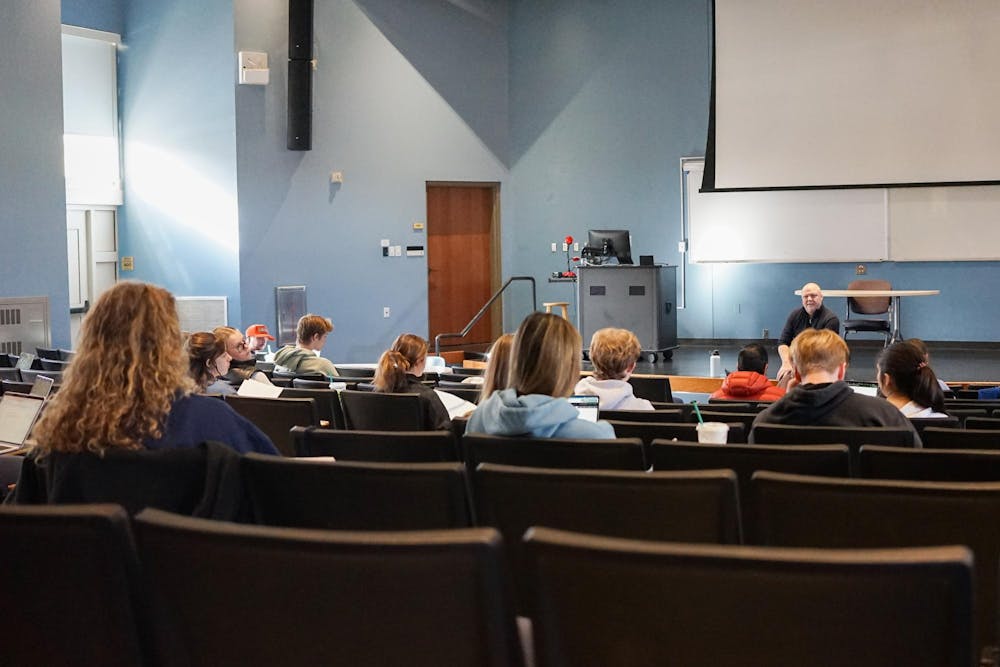Starting in the fall of 2023, Miami University removed or consolidated 19 majors due to low enrollment. Now in 2025, more majors may soon be removed due to changes in state law and the relocation of resources toward majors with high levels of enrollment.
What’s happening?
The majors placed on the chopping block two years ago were mostly in language or cultural studies, and their department chairs were told that if they did not have a plan to increase enrollment by December of that year, they would be cut.
Twelve were removed outright: French education, health communication, health information technology, Spanish education, German education, Latin education, Latin American studies, American studies, art history, critical race and ethnic studies, religion, social justice and women's gender and sexuality studies.
Of those 12, only six retained minors: Latin American studies, American studies, art history, critical race and ethnic studies, religion, social justice and women's gender and sexuality studies.
French education, Spanish education, German education, Latin education, health communication and health information technology majors did not retain corresponding minors.
Enjoy what you're reading?
Signup for our newsletter
In April, seven majors – classical studies, French, German, Italian, Russian, East European and Eurasian studies, and East Asian languages and culture were merged into the new World Languages and Cultures major.
In the aftermath of the elimination and consolidation of these majors, the Department of Comparative Religion was merged into the Department of Global and Intercultural Studies. The Department of French, Italian and Classics is currently considering merging with the Department of German, Russian, Asian, and Middle Eastern Languages and Cultures.
Now, more programs are in the process of being removed. Interim Provost Chris Makaroff said that because of changes in student and university priorities, as well as state law, majors like music composition will no longer be offered.
Why is it happening?
In July, Senate Bill 1 (S.B. 1) went into effect. The bill has many contentious issues, from limits on Diversity, Equity and Inclusion subject matter to regulations on faculty unions and striking, both of which Miami faculty and students have protested in the past year.
One particularly impactful section of the bill – ORC 3345.454 – requires that majors graduating fewer than five students a year on average over three years be eliminated. However, the chancellor of the Ohio Department of Higher Education can grant exceptions to this rule.
Renée Baernstein, dean of the College of Arts and Sciences (CAS), said this bill is not expected to affect CAS, as most of the low-enrollment majors were removed in 2023.
“CAS strives to offer a rich and varied range of majors, with a portfolio that aligns with student interest,” Baernstein wrote in an email to The Miami Student. “In the last few years, we've deleted several low-enrolled majors and introduced several others in response to shifting demand. At the moment, we are not planning to delete any additional majors.”
She added that students already enrolled in cut majors have the right to complete the degree as planned.
However, the same may not be true for the College of Creative Arts (CCA).
Ryan Fisher, the dean of the College of Creative Arts (CCA), declined the request to officially comment; however, he said in an email to The Miami Student that CCA will hopefully have all proposed curriculum revisions approved in the next eight months.
Per Bloland, an associate professor of composition and music technology, said one major from CCA that will be eliminated is music composition. It is unclear whether this major is being removed due to S.B. 1 alone or other factors, although it would fall below the five degree minimum.
Bloland said many of the programs, like the ones he teaches, are vitally important within campus culture.
“Music is an essential part of our lives, and having performers and composers on campus adds to many things that are very important to the university,” Bloland said. “… [Humanities programs] enhance the world, they enhance the university and they enhance the student body,” Bloland said.
Aside from complying with state law, Makaroff said the university is trying to focus on courses that more students are taking.
“What we've been trying to do is streamline the curriculum [and] reduce courses where there are very low enrollments,” he said. “There's this notion in society that you have to major in engineering or business or something where you can see a high-paying, tangible job … We're faced with a dilemma of huge numbers of students wanting more business and technology-related classes, and so we just have to shift the resources towards those areas.”
Nathan French, vice chair of the University Senate, chair of the University Senate's executive committee and associate professor of religion and international studies, said the increasing cost of higher education further exacerbates this problem.
“In some sense, this incredible cost of higher education is increasingly putting pressure upon students and their families to think about how each credit hour of their education will become financially and economically generative after their graduation,” French said.
How will these changes affect students and the university?
While students currently enrolled in cut majors will finish their programs, there is still concern over the effect that this could have on the university as a whole.
French said he’s not worried about the quality of education in the short term, but in the long term, things could change.
“As departments consolidate, or if a department is eliminated, it changes the way the university commits to offering certain fields,” French said. “We have a couple of faculty who teach elements of Jewish studies in their courses, but we no longer have one professor whose research and teaching interest is in Jewish studies … at a time when questions about the relationship of Palestine and Israel are foremost on the minds of many students.”
Makaroff said he still hopes the priorities of higher education can return to where they were before.
“When I went to college, it was knowledge for the sake of knowledge,” Makaroff said. “When students would ask, ‘Well, what should I major in?’ I would say you should major in whatever you're passionate about, because if you're passionate, you're going to do well in it, and you're going to learn all the transferable skills. I think that those days are, at least for now, gone … Hopefully, we'll come back one day.”




